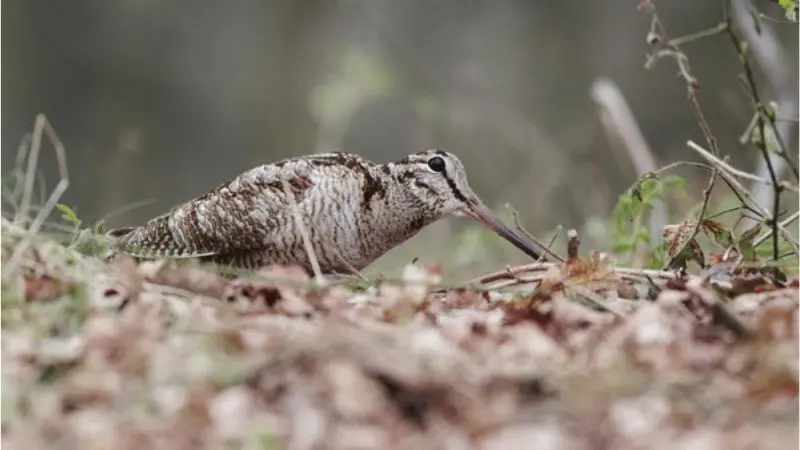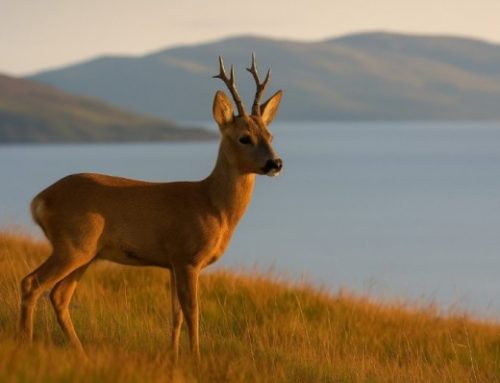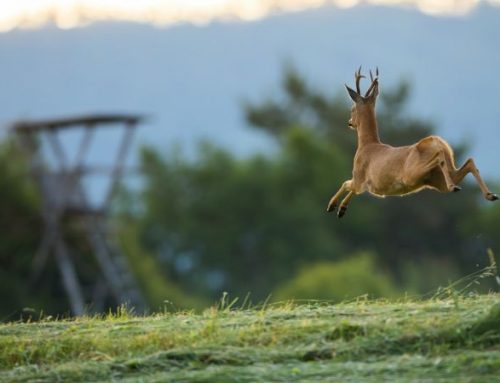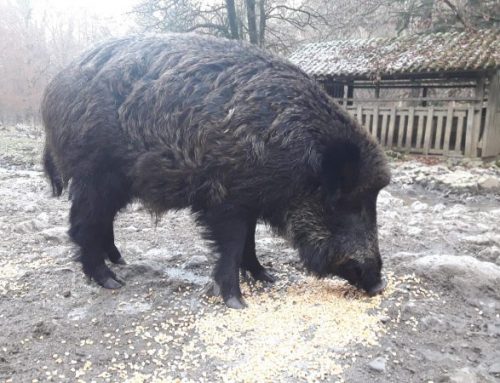I was simply looking for a new adventure, something that would allow me to break away from routine and once again experience the pure thrill of woodcock hunting with my two setters.
I had already explored many places in the past, but I wanted something different, an experience that could surprise me. So, one evening, as I was browsing through online proposals, I came across a place that immediately captured my imagination: the Isle of Bute, in Scotland. I had never heard of it for hunting, but the descriptions promised dense forests, fern-covered fields, and perfect terrain for woodcock. The more I read, the more my desire grew.
Bute, located in the Firth of Clyde, is particularly renowned for its abundance of woodcock, which find refuge in this natural paradise thanks to the mild climate and vegetation-rich terrain. The island, with its mild winters and cool summers, provides ideal conditions for woodcock to rest during migration, making it one of the most frequented destinations for these birds during autumn and winter. The presence of thick oak forests, meadows, and wetlands creates the perfect habitat for their survival. This means that during hunting season, hunters like me can enjoy unforgettable experiences, encountering an extraordinary number of woodcock.
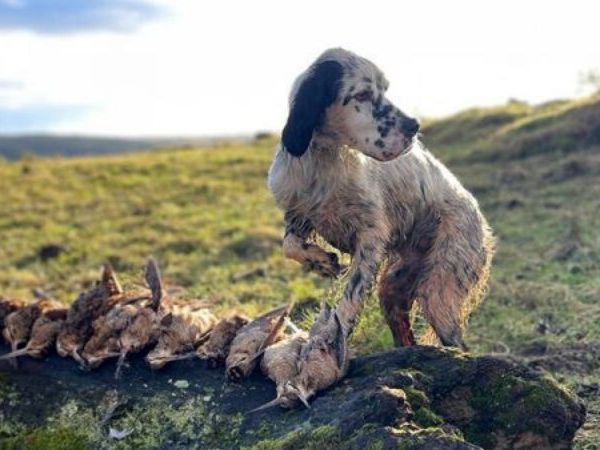
In no time, I made the decision. The planning was meticulous: I would take a flight to Scotland, rent the guns directly on the island for convenience, and send my dogs with a specialized transport service. It was the first time I had been separated from my setters for a journey, but I knew they would be well taken care of.
Arriving in Scotland, the ferry trip from Wemyss Bay to Bute was a special moment. I watched the sea ripple under the boat as the island drew closer on the horizon. I felt like an explorer about to discover a new world. The fifteen-minute crossing seemed like an eternity: my mind raced to my dogs, the hunt that awaited me, and the beauty I already sensed would surround me. When I finally disembarked, the Isle of Bute greeted me with its wild and lush nature. Rolling hills, dense woods, and streams winding through green fields, it all seemed to breathe an ancient, untouched beauty. I immediately felt that this place would leave a lasting mark on my heart.
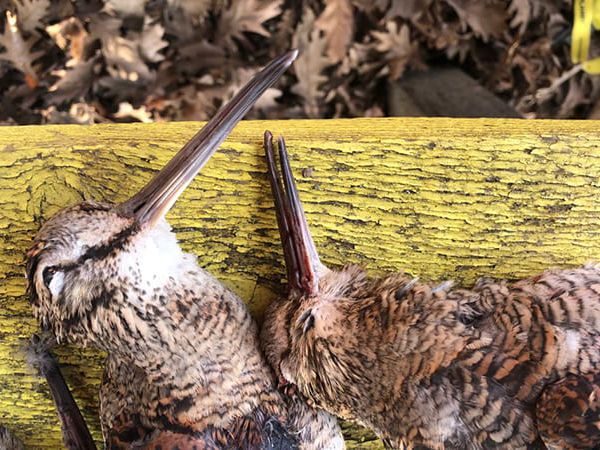
When I finally reunited with my setters, I found them full of energy, ready for the adventure. Settling into the lodge was a pleasant experience: a rustic yet elegant structure, with a crackling fireplace in the living room and a warm, welcoming atmosphere. But my mind was already on the next morning. I barely slept that night; the excitement was too much. I knew that at dawn something special would begin.
The first day of hunting began early, with the fresh air and a sky tinged with the first colors of the rising sun. My dogs were alert, their muscles tense and ready. The ground was moist, perfect for woodcock, and the expanses of ferns stretching before me promised sightings. Walking through ancient oaks and mixed fields of meadows and woods, my setters began to work as if they had always been there. Every movement, every pause was a silent dance, a dialogue between me and them, culminating when one of my setters suddenly stopped. Time seemed to slow down. The dog’s nose pointed towards the prey, tail stiff, tension in the air. And there it was, the woodcock. With a flurry of wings, it took off. My heart pounded, but I decided to let it go, watching it disappear into the trees. In Bute, the number of sightings was such that I quickly remembered the importance of ethics: it wasn’t about taking as many birds as possible, but about respecting this magical place.
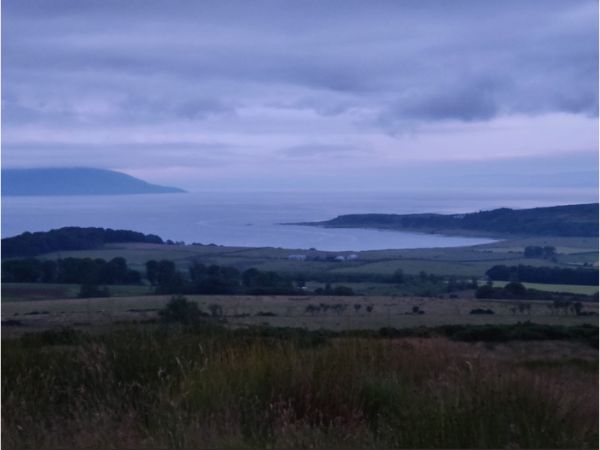
The following days were a succession of similar emotions. My setters continued to prove themselves up to the task, and I found myself immersed in a landscape that seemed straight out of a fairy tale. The island’s hills were a symphony of colors: the deep green of the fields, the golden brown of the autumn ferns, the gnarled trunks of the trees, silhouetted against a clear blue sky. Every step I took through those woods made me feel like part of that world, as if the island were whispering ancient secrets to me.
Hunting on Bute, however, required great discipline. The number of woodcock sightings was incredible, but respect for the environment and wildlife was the priority. Even when the whirr of a woodcock filled the air and my dogs were in perfect sync, I reminded myself that it was essential to stop, reflect, and not overdo it. It was a hunt of quality, not quantity. The true pleasure was in experiencing those moments in harmony with nature, in the company of my dogs.
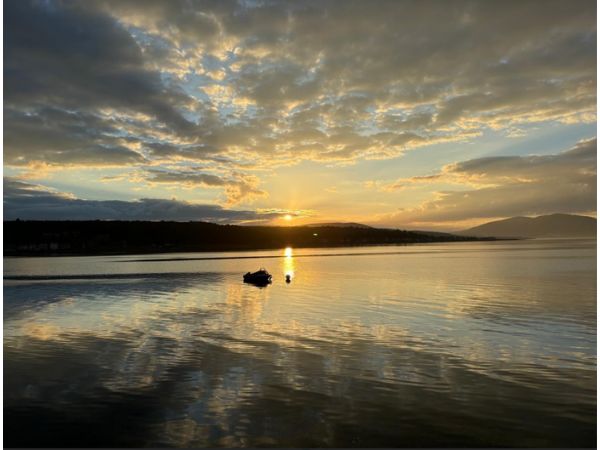
Every evening, returning to the lodge, exhaustion mixed with satisfaction. Sitting around a table with the other hunters, with a glass of whisky in hand, we shared stories, experiences, and laughter. The dinners were a triumph of local flavors, often featuring game, masterfully prepared by the lodge’s chefs. The aroma of the dishes filled the air, and conversation flowed until late at night. There was no rush, only the pleasure of sharing a common passion for hunting in such a unique setting.
At the end of the fourth day, as I packed my things to return, a sense of melancholy began to creep in. I looked at my setters, tired but happy, and I felt that this island had left something profound within me. The “Call of Bute,” as they call it, is real. Just like the “Call of Africa,” the Isle of Bute had planted roots in my heart. Its allure, its woods, the flurry of woodcock among the ferns, my dogs exploring with passion… everything made me wish I could stay just a little longer. But I knew that one day, I would return. The Isle of Bute had become a part of me.

